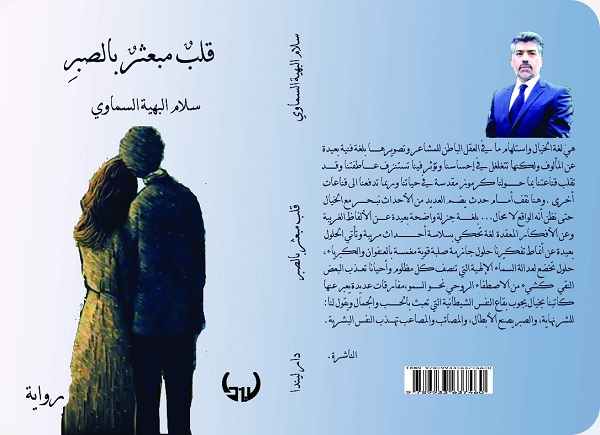أقلام فكرية
الأسباب العلمانية والدينية في الحياة السياسية (1)
 النظرفي عودة وهابرماس
النظرفي عودة وهابرماس
على الرغم من أن معظم المفكرين والباحثين الذين درسوا هذه المشكلة كان بينهم إجماع واسع ضد استخدام الأسباب الدينية في الحياة السياسية، إلا أنه لا يزال هناك قدر كبير من الخلاف بينهم حول التفاصيل1.
يشير البعض إلى أن لا يجب أن يتدخل الدين في المداولات السياسية أبدًا بينما يعتقد البعض الآخر أنه قد يلعب دورًا اعتمادًا على نوع السؤال السياسي المطروح، أو المنصب الخاص الذي قد يشغله شخص ما، أو المكان الذي تحدث فيه المداولات. أنا لا أقصد أشراك جميع الحجج المتضمنة في ما اسميه القيود التداولية. بدلاً من ذلك، أفحص ما أعتبره أكثر الحجج إقناعاً المتاحة ضمن الإجماع وأكشف لماذا أخطأوا لأسباب أخلاقية وتجريبية.
يرتكب الإجماع الواسع لصالح القيود التداولية أخطاء أخلاقية وتجريبية لأنه يبالغ في تقدير كل من معقولية وجاذبية النظام السياسي "المقيد" وتهديد النظام "الديني". ينسج أنصار القيود التداولية معًا مجموعة من المطالب التي تبدو مقنعة مما يجعل هذه القيود أحد ركائز النظام الاجتماعي والسياسي الديمقراطي، لكنها لا تصمد أمام الفحص الدقيق، خاصة تلك التي تفكك خيوطهم الأخلاقية والتجريبية الناظمة. أريد ان أركز أولاً على ادعاءات القيود التداولية، ولا سيما تلك التي تدافع عن أولوية العلمانية ومن ثم الأسباب العمومية .أقترح (من موقع نقدي ودافع البحث عن اسباب اقوى) أن فلاسفة مثل روبرت عودة، ويورغن هابرماس، وجون راولز يرفضون بسرعة الأسباب الدينية على أنها مشتبه فيها إبستيمولوجيا وأخلاقياً، كما أنهم يقدمون أيضًا ادعاءات تجريبية غير مبررة تقول أن الخصخصة السياسية للدين شبه حتمية أو قدرة هذه الأدعاءات على إثارة الصراع السياسي. وعليه أن أدعاء القيود التداولية أنها تمثل الى حد ما جهد لضمان الشرعية السياسية في نظام ديمقراطي دستوري يتميز بتعددية أخلاقية واسعة وعميقة، لا يمكن أن تصمد. إنه طموح بشكل مفرط فيما يتعلق بدرجة التوافق الأخلاقي والسياسي الذي يمكن أن نتوقعها في ظل ظروف التعددية وغير مدركين للقول أن الجهود المبذولة للدفع في أي حال قد تؤدي إلى نتائج عكسية للغاية.
الدّكتور عليّ رّسول الرّبيعيّ
........................
1- للأطلاع على النقاشات الموسعة حو الأسباب الدينية أنظر:
Audi, Robert. "The Place of Religious Argument in a Free and Democratic Society." San Diego Law Review 30 (1993): 677- 702.
Audi, Robert.Religious Commitment and Secular Reason. Cambridge and New York: Cambridge University Press, 2000.
Audi, Robert. “The State, the Church, and the Citizen." In Religion and Cotemporary Liberalism, ed. Paul J. Weithman. Notre Dame, IN: University of Notre Dame Press, 1997.
Audi, Robert, and Nicholas Wolterstorff. Religion in the Public Square: The Place of Religious Convictions in Political Debate. Lanham, MD: Rowman & Littlefield, 1997.
Berkowitz, Peter. "John Rawls and the Liberal Faith." Wilson Quarterly 26, no. 2 (2002): 60-70.
Carter, Stephen L.God's Name in Vain: The Wrongs and Rights of Religion in Politics, 1st. edn. NewYork: Basic Books, 2000.
Chaplin, Jonathan. "Beyond Liberal Restraint: Defending Religiously Based Arguments in Law and Public Policy." University of British Columbia Law Review 33, no. 3 (2000): 617-46.
Dombrowski, Daniel A. Rawls and Religion: The Case for Political Liberalism. Albany: State University of New York Pres s, 2001.
Eberle, Christopher J. "Basic Human Worth and Religious Restraint." Philosophy and Social Criticism 35, no. 1-2 (2009): 151-81.
Christopher J. Eberle, "Religion, Pacifism and the Doctrine of Restraint;' Journal of Religions Ethics 34, no. 2 (2006);
Christopher J. Eberle, Religious Conviction in Liberal Politics. New York: Cambridge University Press, 2002.
Elshtain, Jean "State-Imposed Secularism as a Potential Pitfall of Liberal Democracy." Paper presented at the Religious Liberty Conference, Prague, Czech Republic, 2000.
Greenawalt, Kent. Private Consciences and Public Reasons. New York: Oxford University Press, 1995.
Habermas,Jurgan On the Relations between the Secular Liberal State and Religion." In Political Theologies: Public Religions in a Post-Secular World, ed. Hent De Vries and Lawrence Sullivan. New York: Fordham University Press, 2006.
Habermas, "Religion in the Public Sphere"; JeffJordan, "Religious Reasons and Public Reasons," PublicAffairs Quarterly 11, no.3 (1997);
Krause, Sharon R. Civil Passions: Moral Sentiment and Democratic Deliberation. Princeton, NJ: Princeton University Press, 2008.
Larmore, Charles. "The Moral Basis of Political Liberalism." Journal of Philosophy 96, no. 12 (1999): 559-626.
Macedo, Stephen. “Transformative Constitutionalism and the Case of Religion: Defending the Moderate Hegemony of Liberalism." Political Theory 26, no. 1 (1998): 56-80.
Parkinson, John. Deliberating in the Real World. Oxford: Oxford University Press, 2006.
Perry, Michael J. Religion in Politics: Constitutional and Moral Perspectives. New York: Oxford University Press, 1997.
Rawls, John."The Idea of Public Reason Revisited." In The Law of Peoples, ed. John Rawls.Cambridge: Harvard University Press, 1999.
Rosenblum, Nancy L., ed. Obligations of Citizenship and the Demands of Faith.
Princeton, NJ: Princeton University Press, 2000.
Swaine, Lucas. "Deliberate and Free: Heteronomy in the Public Square."Philosophy and Social Criticism 35, no. 1- 2 (2009): 183-213.
Talisse, Robert. "Dilemmas of Public Reason: Pluralism, Polarization, and Instability." In The Legacy of John Rawls, ed. Thom Brooks and Fabian Freyenhagen. New York: Continuum, 2005.
Weithman, Paul J.Religion and the Obligations of Citizenship. Cambridge: Cambridge University Press, 2002.








